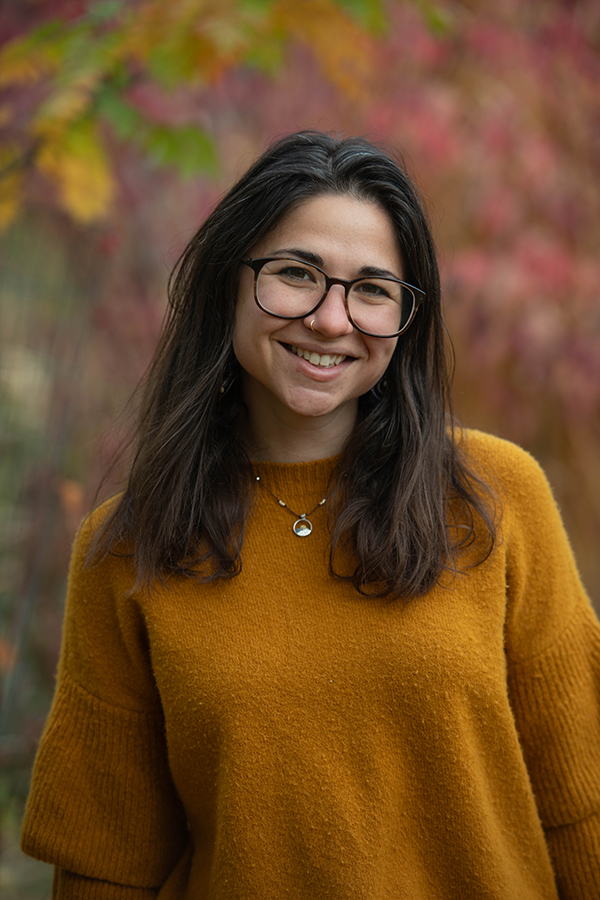Jaclyn Rushing
Social Scientist

Email: jaclyn.rushing@usda.gov
Phone: (406) 542-3245
Fax: (406) 542-4196
Address:
790 E Beckwith Ave
Missoula, MT 59801
Education
2025 PhD, University of Montana, Department of Society and Conservation
2017 M.S., Forest Ecosystems and Society, Oregon State University, Corvallis
2014 B.A., Dual Major in Environmental Studies and Romance Languages, University of Oregon, Robert D. Clarke Honors College, Eugene.
Background
Jaclyn is a social scientist who focuses on outdoor recreation experiences and protected area management. She is energized by relationships with practitioners, stakeholders, rightsholders, and fellow scientists. Jaclyn has worked for municipal, state, and national parks and has a background in basic and applied mixed-methods and multi-disciplinary research. She believes that multiple approaches allow more nuanced understanding of complex social phenomena and uses quantitative and qualitative methods, spatial analysis, netnography, and historical research. Jaclyn’s past work includes understanding relationships among leisure constraints, visitation, and place attachment to parks and wilderness areas, relationships between protected areas and gentrification, and historical narratives of mountaineering and glaciology, and several monitoring studies on visitor use and experience in national parks, Wilderness, and Wild and Scenic Rivers. Jaclyn is thrilled to join ALWRI to support Wilderness stewardship into future.
Scientific Publications
Thomsen, J. M., Rice, W. L., Rushing, J. F., & Armatas, C. A. (2023). U.S. wilderness in the 21st century: A scoping review of wilderness visitor use management research from 200 to 2020. Journal of Leisure Research, 54(1), 3–25. https://doi.org/https://doi.org/10.1080/00222216.2022.2142870
Thomas, E. R., Rice, W. L., Rushing, J. R., Thomsen, J. M., & Armatas, C. A. (2022). Constraints to wilderness recreation: A scoping review. International Journal of Wilderness, 28(2), 18–35. https://doi.org/10.5281/zendo.7647630
Rushing, J. R., D’Antonio, A., & Needham, M. D. (2022). Spatial Patterns of Constraints to Park Visitation among Urban Populations. Leisure Sciences, 44(8), 1033–1059. https://doi.org/10.1080/01490400.2019.1696258
Rice, W. L., Rushing, J. R., Thomsen, J. M., & Whitney, P. (2021). Exlusionary effects of campsite allocation through reservations in U.S. national parks: Evidence from mobile device location data. Journal of Park and Recreation Administration.
Henry, C. M., Kiewra, L. A., Knight, E. M., Rojas, C., & Rushing, J. R. (2021). (Re) Centering socioenvironmental justice: Thinking about co-management of and access to parks and protected areas in the United States. Parks Stewardship Forum, 37(3), 527–533.
Rice, W. L., Armatas, C. A., Thomsen, J. M., & Rushing, J. R. (2021). Distribution of visitor use management research in US wilderness from 2000 to 2020: A scoping review. International Journal of Wilderness, 27(3), 46–61. https://doi.org/10.5281/zenodo.7647619
Casola, W. R., Rushing, J., Futch, S., Vayer, V., Lawson, D. F., Cavalieri, M. J., Larson, L. R., & Peterson, M. N. (2020). How do YouTube videos impact tolerance of wolves? Human Dimensions of Wildlife. https://doi.org/10.1080/10871209.2020.1773582
Rigolon, A., Keith, S. J., Harris, B., Mullenbach, L. E., Larson, L. R., & Rushing, J. (2020). More than “just green enough”: Helping park professionals achieve equitable greening and limit environmental gentrification. Journal of Park & Recreation Administration, 38(3), 29–54. https://doi.org/10.18666/JPRA-2019-9654
Rushing, J. R., Needham, M. D., D’Antonio, A., & Metcalf, E. C. (2019). Barriers to attachment? Relationships among constraints, attachment, and visitation to urban parks. Journal of Outdoor Recreation and Tourism, 27, 100228. https://doi.org/10.1016/j.jort.2019.100228
Carey, M., Jackson, M., Antonello, A., & Rushing, J. (2016). Glaciers, gender, and science: A feminist glaciology framework for global environmental change research. Progress in Human Geography, 40(6), 770–793. https://doi.org/10.1177/0309132515623368